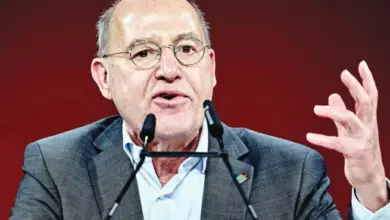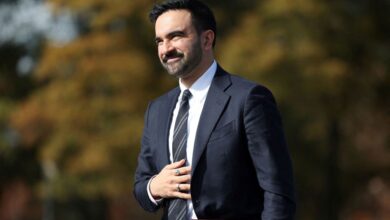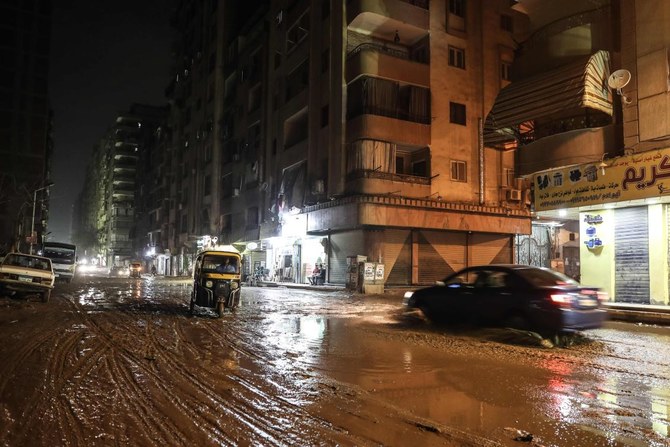The mood in the room was weirdly light-hearted, considering the subject matter at hand. One after another, members of a group of activists and bloggers detailed the day and half they spent in a jail in Naga Hammadi. Their crime: attempting to offer condolences to families of the victims on the Jan 6 church attack that left six Christian worshippers and one Muslim policeman dead.
But when they gathered to publicly tell their stories last week at the Hisham Mubarak Law Center, the sheer ridiculousness of what they had endured caused the attendees to break up in laughter more than once.
“We weren’t going to do anything political. We were just going to pay our respects,” said Mostafa el-Naggar, who helped organize the trip. Then he laughed and added, “We had leftists and Nasserists and Islamists and Christians. It was all of Egypt in that jail cell.”
Mohamed Khaled, who blogs under the name Demagh Mak recalled a surreal conversation with one of the arresting officers.
“The officer told me, ‘You’ve come to overthrow the government,’ ” Khaled said, laughing. “I said, ‘Really? Me and (fellow blogger) Wael Abbas are going to overthrow the government?!’ ”
It’s easy to laugh in retrospect at the thought of an interfaith collection of peaceful activists attempting a public display of national unity, then being rounded up as a threat to national unity. But the incident shines a light on just how sensitive the government has become regarding the Naga Hammadi massacre.
From the very start, the state has seemed more intent on controlling the perceptions of the incident rather than addressing its extremely disturbing societal implications. State-owned media have consistently downplayed a sectarian angle on the killings — which is a hard thing to plausibly do when a group of Muslims open fire on a church on Christmas Eve.
Two days after the massacre, Al-Ahram’s front page flatly declared, “The Naga Hammadi incident is not sectarian.” Instead the state media (generally citing security sources) tied the attack to rising local tensions down south stemming from the alleged rape last year of a Muslim woman by a Christian man.
Al-Akhbar floated an alternative theory: that one of the killers’ daughters died at the hands of a Christian doctor.
The official line painted the Naga Hammadi shootings as the product of tit-for-tat retaliations stemming from the rural revenge tradition known as Tar. Government officials strongly denied that the attack was an indication of any larger tensions between Egypt’s Muslim majority and approximately 10 percent Christian minority.
"There is a big effort to refuse to describe this event as sectarian," said Hossam Bahgat, director of the Egyptian Initiative for Personal Rights. Authorities, he said, were trying to "de-contextualize the Naga Hammadi events to narrow the scope."
The shooters, according to the government’s interpretation, were garden variety violent criminals and the whole affair was a isolated incident best left in the hands of the justice system and the reconciliation committees — the traditional upper Egyptian vehicles for settling vendetta feuds.
But despite the government’s best efforts, few outside the official media have played along with the party line. Activists and independent media have generally ignored the government’s information campaign and called for a national examination of the country’s Muslim-Christian relations.
“This issue is very big and anyone who says Egyptian society is fine is simply wrong. It’s not fine at all,” said an angry George Ishak, one of the founders of the Kefaya political movement. “The government wants to minimize the issue and make it something small and local.”
Al-Dostour newspaper probably led the pack on this issue with several days of coverage that painted a stark societal picture. Editor-in-Chief Ibrahim Eissa declared that Egypt’s sectarian tensions have been years in the making and have “spread to a wide area of Egypt.”
The current tensions and widening culture of violence in Egypt, Eissa wrote, will take serious long-term work to unravel. “I don’t believe this will disappear within the next few years,” he said.
Another Al-Dostour headline referenced last year’s stabbing death of an Egyptian woman in Germany and asked a dangerous question: “Why do we consider the killing of Mawra el-Sherbini persecution of Muslims in the West and deny that the Naga Hammadi crimes are persecution of Christians?”
The issue of whether to consider the Naga Hammadi killings as sectarian attacks even made it to the floor of the parliament. Christian MP Georgette Qellini caused a public uproar by insisting in open session that the attacks be classified and dealt with as part of a rising pattern of sectarian problems.
She was shouted down and criticized by other MPs, but her outburst obviously struck a chord. Several days later, a large crowd of angry Christian protesters shouted slogans in favor of Qellini on the grounds of the Abbasiya Cathedral.




